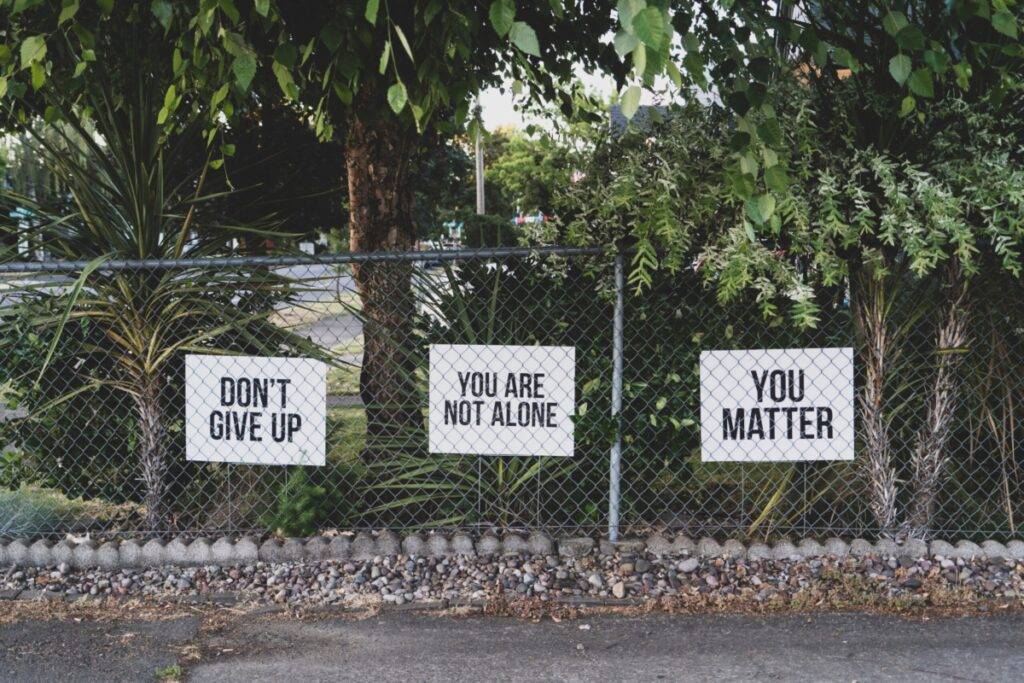Our eyes are incredibly vital to our everyday lives, acting as windows to the world. To keep them functioning at their best, it’s essential to nourish them with the best vitamins for eyes. In this blog post, we’ll explore the top 7 vitamins that can help improve and protect your vision while considering factors such as age, lifestyle, and existing eye conditions. We’ll discuss the benefits of incorporating specific vitamins into your diet and how they combat various eye issues, along with the pros and cons of each nutrient.
As we uncover the best vitamins for eyes, you’ll learn about their unique roles in promoting and maintaining optimal eye health. From supporting the retina’s function to protecting your eyes against harmful free radicals, these vitamins are the unsung heroes of safeguarding your vision. We’ll provide practical tips on incorporating these essential nutrients into your daily diet and delve into the role of supplements, discussing their potential benefits and drawbacks.
Embark on this eye-opening journey with us, as we present valuable information in an engaging, creative, and human-like manner. By the end of this blog post, you’ll be well-versed in the best vitamins for eyes and ready to take action to enhance your vision and protect your peepers.
Table of Contents
1. Vitamin A
Vitamin A is well-known for its role in maintaining healthy vision. It is crucial for the retina’s normal function, and a deficiency can lead to night blindness, dry eyes, and even more severe issues like macular degeneration. Vitamin A is undoubtedly one of the best vitamins for eyes, playing a pivotal role in maintaining healthy vision. This essential nutrient is the superstar of eye health, contributing to the retina’s normal function and helping us see the world in vivid colours and crisp details.
A deficiency in vitamin A can result in a variety of eye issues, such as night blindness, which makes it challenging to see in low-light conditions. Dry eyes can also be a symptom of inadequate vitamin A intake, causing discomfort and potentially leading to more severe complications if left untreated. In extreme cases, a lack of this crucial vitamin may even contribute to macular degeneration, a leading cause of vision loss. To learn more about the importance of vitamin A and other nutrients for eye health, check out this article on the 5 best supplements for better eye health.
To ensure you’re getting enough vitamin A, one of the best vitamins for eyes, focus on consuming a balanced diet rich in colourful fruits and vegetables. Foods such as carrots, sweet potatoes, spinach, and kale are packed with beta-carotene, a precursor to vitamin A that our body can convert into the active form needed for optimal eye health. Incorporating these eye-friendly foods into your daily meals not only helps maintain good vision but also supports your overall well-being.
If you’re interested in learning more about eye vitamins tailored to your specific needs, this article on eye vitamins for men and women offers valuable insights. As you explore the world of the best vitamins for eyes, remember that each individual is unique, and it’s essential to find the right balance of nutrients that works for you.
While vitamin A is a vital component in the quest for optimal eye health, it’s important to note that it works best in conjunction with other essential nutrients. In this article on 5 vitamins and supplements for your eye health, you’ll discover how various vitamins and minerals come together to create a powerful team in protecting your vision.
Best form of vitamin A for eyes
The best form of vitamin A for eyes is beta-carotene, a precursor to vitamin A found in many fruits and vegetables. Beta-carotene is converted into retinol in the body, which is essential for proper eye function. For more information about vitamin A, visit the Office of Dietary Supplements.
Eye vitamins food
To get enough vitamin A, include foods rich in beta-carotene in your diet. Some excellent sources are:
- Carrots
- Sweet potatoes
- Spinach
- Kale
- Cantaloupe

2. Vitamin E
Vitamin E is a powerful antioxidant that helps protect the eyes from harmful free radicals, which can contribute to the development of cataracts and age-related macular degeneration (AMD). To learn more about vitamin E, check out this resource.
Vitamin E, another one of the best vitamins for eyes, is a potent antioxidant that plays a crucial role in safeguarding our vision. By neutralizing harmful free radicals, vitamin E helps protect our eyes from oxidative stress, which can contribute to the development of cataracts and age-related macular degeneration (AMD). To delve deeper into the benefits of vitamin E for eye health, check out this informative resource.
In the quest to find the best vitamins for eyes, it’s essential to remember that a well-rounded approach to eye health is key. Alongside vitamin E, other essential nutrients work in harmony to support and maintain optimal vision. By adopting a healthy lifestyle and nourishing our bodies with a balanced diet, we can give our eyes the best possible chance to thrive. To learn more about these essential nutrients and their role in eye health, explore this article on the 5 best supplements for better eye health.
Eye vitamins for adults
Adults should aim to get at least 15 mg of vitamin E per day. Some vitamin E-rich foods include:
- Almonds
- Sunflower seeds
- Hazelnuts
- Spinach
- Avocado
3. Vitamin C
Vitamin C is another antioxidant that helps support eye health by reducing the risk of cataracts and AMD. A study found that a higher intake of vitamin C was associated with a lower risk of cataracts.
Vitamin C, an essential member of the best vitamins for eyes club, further reinforces our arsenal in the battle for optimal eye health. This antioxidant superhero helps support our vision by reducing the risk of cataracts and AMD. In fact, a study discovered that a higher intake of vitamin C was associated with a lower risk of cataracts, highlighting its importance in maintaining clear and healthy vision.
As we continue to explore the fascinating world of the best vitamins for eyes, it’s essential to remember that combining these powerhouse nutrients in our daily diet can create a synergistic effect, providing our eyes with the ultimate defence against common vision-related issues. Embrace a colourful and nutrient-rich diet, and let your eyes shine brightly as you navigate through life’s beautiful moments.
Best eye vitamins for blurry vision
Vitamin C, along with other antioxidants, can help improve blurry vision caused by oxidative stress. To get enough vitamin C, consume fruits and vegetables such as:
- Oranges
- Kiwi fruit
- Strawberries
- Bell peppers
- Broccoli
- Brussels sprouts
4. Zinc
Zinc is an essential mineral that plays a crucial role in eye health. It helps transport vitamin A from the liver to the retina, where it is used to produce melanin, a protective pigment in the eyes. Zinc deficiency can lead to poor night vision and even cataracts. Some research suggests that zinc supplements may slow down the progression of AMD.
As we delve deeper into the realm of the best vitamins for eyes, we encounter zinc, an essential mineral that plays a crucial role in maintaining optimal eye health. Acting as a faithful companion to vitamin A, zinc helps transport this vital nutrient from the liver to the retina, where it is used to produce melanin – a protective pigment that shields our eyes from harm. As one of the best vitamins for eyes, zinc not only supports our vision but also helps prevent deficiencies that can lead to poor night vision and even cataracts.
Furthermore, some research suggests that zinc supplements may slow down the progression of AMD, further highlighting the importance of this powerful mineral in our quest for healthy eyes. So, keep an eye out for zinc in your diet and give your vision the support it needs to thrive in today’s fast-paced world.
Best supplement for eyesight improvement
Zinc, along with other essential vitamins and minerals, can contribute to improved eyesight. Foods high in zinc include:
- Oysters
- Beef
- Crab
- Chickpeas
- Pumpkin seeds
5. Omega-3 Fatty Acids
Omega-3 fatty acids, particularly EPA and DHA, are crucial for maintaining the retina’s health and reducing the risk of AMD and dry eyes. A study found that a higher intake of omega-3 fatty acids was associated with a lower risk of developing AMD.
The search for the best vitamins for eyes would be incomplete without mentioning omega-3 fatty acids, particularly EPA and DHA. These essential fats play a pivotal role in maintaining the retina’s health and reducing the risk of AMD and dry eyes. Their powerful anti-inflammatory properties work behind the scenes, ensuring our eyes remain healthy and vibrant. A study found that a higher intake of omega-3 fatty acids was associated with a lower risk of developing AMD, further solidifying their place among the best vitamins for eyes.
By incorporating a wide array of the best vitamins for eyes into our diets, we can create a robust foundation for lifelong eye health. Omega-3 fatty acids are a shining example of the importance of a well-rounded approach to nutrition, emphasizing the need for a balanced and diverse diet. So, go ahead and nourish your eyes with these vital nutrients, and let your vision flourish as you embark on life’s visual adventures.

Omega fatty acids
To ensure you’re getting enough omega-3s, include the following foods in your diet:
- Fatty fish (such as salmon, mackerel, and sardines)
- Walnuts
- Flaxseeds
- Chia seeds
- Soybeans
6. Lutein and Zeaxanthin
Lutein and zeaxanthin are carotenoids found in the retina and macula. They help protect the eyes from blue light and oxidative stress, which can contribute to AMD and cataracts. Some evidence suggests that lutein and zeaxanthin supplements may improve visual performance and reduce eye strain.
As we continue our exploration of the best vitamins for eyes, we encounter lutein and zeaxanthin, two carotenoids that reside in the retina and macula. These natural superheroes work diligently to protect our eyes from blue light and oxidative stress, which can contribute to AMD and cataracts. Their presence in the eye acts as a natural defence mechanism, shielding our vision from potential harm. As part of the best vitamins for eyes team, lutein and zeaxanthin prove that nature has equipped us with powerful tools to maintain our eye health.
Some evidence suggests that lutein and zeaxanthin supplements may improve visual performance and reduce eye strain, making them valuable additions to our eye care toolkit. As we strive to provide our eyes with the best vitamins for eyes, it’s essential to remember that a balanced approach is key. By incorporating a diverse range of nutrients into our diet and embracing a healthy lifestyle, we can ensure that our eyes remain sharp and vibrant, ready to take on the world’s visual wonders.
Vitamins for eye floaters
While there is no specific supplement to eliminate eye floaters, maintaining overall eye health with lutein and zeaxanthin can help. Foods rich in these carotenoids include:
- Spinach
- Kale
- Collard greens
- Broccoli
- Corn
7. B Vitamins
B vitamins, particularly B6, B9 (folate), and B12, can help reduce the risk of AMD by lowering homocysteine levels, an amino acid that has been linked to inflammation and increased risk of AMD.
Among the pantheon of the best vitamins for eyes, B vitamins have earned their rightful place, particularly B6, B9 (folate), and B12. These essential nutrients work in unison to help reduce the risk of AMD by lowering homocysteine levels, an amino acid that has been linked to inflammation and increased risk of AMD. By keeping homocysteine levels in check, these B vitamins contribute to a harmonious environment within our eyes, allowing them to function at their best.
As we strive to nourish our eyes with the best vitamins for eyes, it’s crucial to recognize the power of synergy. Each of these vitamins and minerals plays a unique role in supporting our vision, but their combined effects can create a robust shield against age-related eye issues. Embrace a diet rich in the best vitamins for eyes and make a conscious effort to prioritize your eye health, so you can continue to enjoy the beauty of the world around you with crystal-clear vision.
Can eye supplements improve vision?
While supplements can support overall eye health, they are not a guaranteed solution for improving vision. It is essential to maintain a balanced diet, exercise regularly, and prioritize overall wellness to promote healthy eyesight. To learn more about the importance of a well-rounded lifestyle, visit our articles on regular exercise and mental health and well-being.

To boost your B vitamin intake, consider consuming foods such as:
- Whole grains
- Legumes
- Leafy greens
- Poultry
- Dairy products
Pros, Cons & Highlights
Pros
- Vitamins and minerals support overall eye health.
- Antioxidants can help reduce the risk of AMD and cataracts.
- A balanced diet with the right nutrients can improve vision and prevent deficiencies.
Cons
- Supplements alone cannot guarantee improved vision.
- Overconsumption of some vitamins can have negative side effects.
Highlights
- Focus on incorporating a variety of eye-friendly foods into your diet.
- Consult with an eye care professional before starting any supplement regimen.
In conclusion, the best vitamins for eyes include vitamin A, vitamin E, vitamin C, zinc, omega-3 fatty acids, lutein and zeaxanthin, and B vitamins. To maintain optimal eye health, focus on consuming a balanced diet rich in these nutrients, exercise regularly, and prioritize your overall well-being. Remember that while supplements can support eye health, they are not a guaranteed solution for vision improvement. Always consult with an eye care professional before starting any supplement regimen and address any vision concerns. By focusing on the best vitamins for eyes and making healthy lifestyle choices, you can support your vision and overall eye health.
For more information on essential nutrients and their role in our overall health, check out our article on understanding essential nutrients. With the right approach, you can enhance your vision and protect your peepers for years to come.
FREQUENTLY ASKED QUESTIONS
-
Which vitamin supplement is best for eyes?
Determining the single best vitamin supplement for eyes can be challenging, as our eyes require a diverse range of nutrients to function optimally. Instead, a balanced approach that incorporates the best vitamins for eyes – including vitamin A, vitamin E, vitamin C, zinc, omega-3 fatty acids, lutein, zeaxanthin, and B vitamins – is more likely to provide the comprehensive support our eyes need. It’s essential to consult with a healthcare professional to tailor a supplement regimen that addresses your unique needs, ensuring that your eyes receive the nourishment they deserve to maintain their health and vitality.
-
Which vitamin is most important for vision?
While it’s difficult to pinpoint a single vitamin as the most important for vision, vitamin A is often regarded as one of the best vitamins for eyes due to its crucial role in maintaining healthy vision. Vitamin A is essential for the retina’s normal function, and a deficiency can lead to night blindness, dry eyes, and even more severe issues like macular degeneration. However, it’s important to remember that a holistic approach that includes a range of the best vitamins for eyes – such as vitamin C, vitamin E, zinc, omega-3 fatty acids, lutein, zeaxanthin, and B vitamins – is vital to support optimal eye health. Embrace a balanced diet, and give your vision the comprehensive care it needs to thrive.
-
Can vitamins improve eyesight?
Vitamins can indeed play a significant role in maintaining and potentially improving eyesight. Ensuring you’re getting the best vitamins for eyes can help support overall eye health and protect against various age-related eye conditions. While vitamins may not necessarily reverse existing vision problems, they can contribute to a healthy environment within the eyes, allowing them to function at their best. By nourishing your eyes with the best vitamins for eyes and adopting a balanced diet, you can take proactive steps to safeguard your vision and enjoy the beauty of the world around you with crystal-clear eyesight.
-
What vitamin deficiency causes eye problems?
Several vitamin deficiencies can lead to eye problems, highlighting the importance of getting the best vitamins for eyes to maintain optimal eye health. For instance, a deficiency in vitamin A can cause night blindness, dry eyes, and even severe issues like macular degeneration. Similarly, deficiencies in other essential vitamins such as vitamin C, vitamin E, and the B vitamins can contribute to the development of cataracts, age-related macular degeneration (AMD), and other eye-related issues. By ensuring you consume a balanced diet rich in the best vitamins for eyes, you can minimize the risk of developing vision problems and help your eyes stay healthy and vibrant throughout your life.
-
What are the 14 signs of vitamin D deficiency?
Vitamin D deficiency can manifest in various ways, affecting different aspects of your health. Here are 14 signs that you may be experiencing a deficiency in this essential nutrient: 1) Fatigue, 2) Weakness, 3) Frequent infections, 4) Poor wound healing, 5) Muscle pain, 6) Bone pain, 7) Joint pain, 8) Low mood or depression, 9) Hair loss, 10) Difficulty concentrating, 11) Weakened immune system, 12) Reduced bone density (osteoporosis), 13) Soft or brittle bones (osteomalacia), and 14) Increased risk of fractures. It’s important to consult a healthcare professional if you suspect a vitamin D deficiency, as they can assess your situation and provide appropriate recommendations to ensure your body gets the vital nutrients it needs to thrive.



